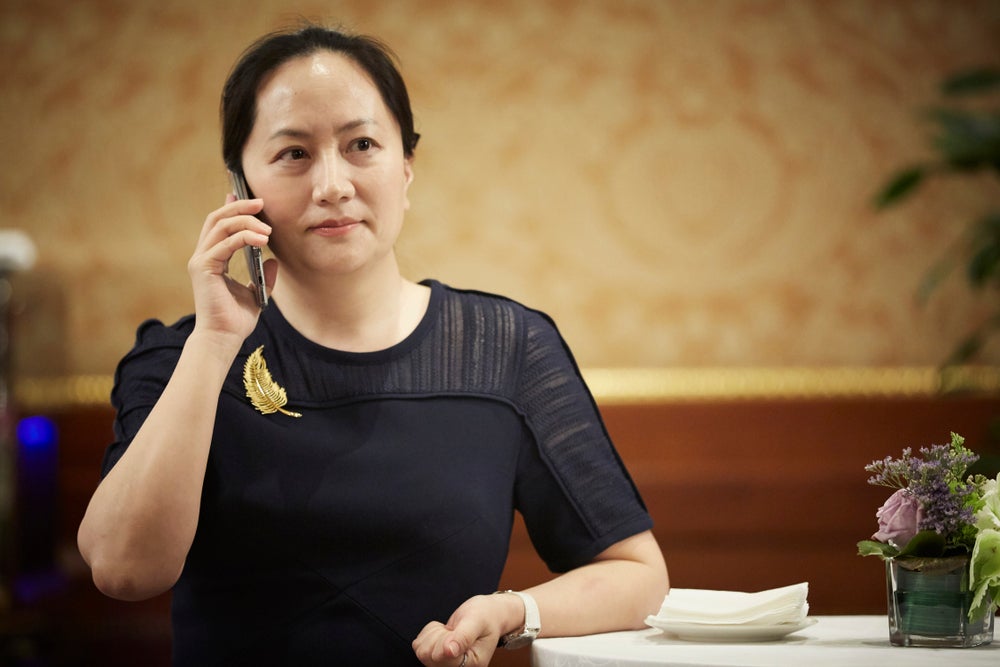Huawei Technologies, the world’s largest provider of telecom infrastructure and second largest handset manufacturer behind Samsung, faces the biggest challenge of its 30-year history with the detention of its CFO, Meng Wanzhou, by Canadian authorities in December.
Huawei has enjoyed a meteoric 30-year ride from a relatively obscure vendor catering to its home market to the largest provider of telecommunications equipment globally. While Huawei has effectively been shut out of the US market due to governmental concerns that Huawei equipment could potentially be used as a ‘back door’ to gain access to mission-critical systems and sensitive customer data, the company has been wildly successful in becoming an important supplier of radios, routers, and optical equipment to major operators in Western Europe, including Vodafone and Telefonica, as well to operators in other important markets like Japan and South Korea.
Change of rules
However, the company has seen itself under increasing threat of being shut out of 5G initiatives in markets such as the U.K., Germany, and Australia, which find themselves under apparent pressure from the U.S. government to ban Huawei gear. In the past six months, the U.K., Germany, and Australia have implemented new rules making it much more difficult, if not impossible, for network operators to select Huawei gear. Japan appears prepared to move in the same direction. All of which raises the very real prospect that Huawei could increasingly be relegated to a smaller list of potential customers in APAC, the Middle East, and Africa.
As if the security challenges weren’t enough, the detention of Huawei CFO Meng Wanzhou (daughter of the company’s founder) by Canadian authorities in December has rocked the company to the core. The company now faces charges that it set up a shadow company in order to hide sales of telecommunications equipment to Iranian network operators, a violation of U.S. sanctions since Huawei uses components from U.S. suppliers.
Similar behavior by another Chinese vendor, ZTE, resulted in that company being shut down for three months earlier in 2018. And the allegations against Huawei – if true – appear to go at least as far as ZTE’s violations: U.S. authorities allege that between 2009 and 2014, Huawei used a secret subsidiary called Skycom Tech to do business with Iranian operators in order to get around the U.S. sanctions.
Huawei CFO arrest impact
While it’s too early to predict the outcome of the case against Meng, the charges come at the exact wrong time for Huawei, which finds itself caught in the middle of currently rising trade tensions between the U.S. and China. Huawei appears much better positioned financially than ZTE to survive any potential monetary penalties, but if the charges alleged are true, the penalties may be much more severe.
How well do you really know your competitors?
Access the most comprehensive Company Profiles on the market, powered by GlobalData. Save hours of research. Gain competitive edge.

Thank you!
Your download email will arrive shortly
Not ready to buy yet? Download a free sample
We are confident about the unique quality of our Company Profiles. However, we want you to make the most beneficial decision for your business, so we offer a free sample that you can download by submitting the below form
By GlobalDataMeanwhile, network operators are likely to conflate the possible Iranian violation with both the growing security concerns over Huawei gear as well as the increasingly fraught trade relationship. As a result, Huawei is likely in the fight of its life. Meanwhile, Huawei’s competitors are no doubt eager to pounce on the company’s multiple struggles. A report from Bloomberg Intelligence sees a $5 billion opportunity for Huawei rivals, notably Nokia, Ericsson, Cisco, and Juniper, if Huawei continues to be shut out of 5G network upgrades.









Related Company Profiles
Telefonica SA
Nokia Corp